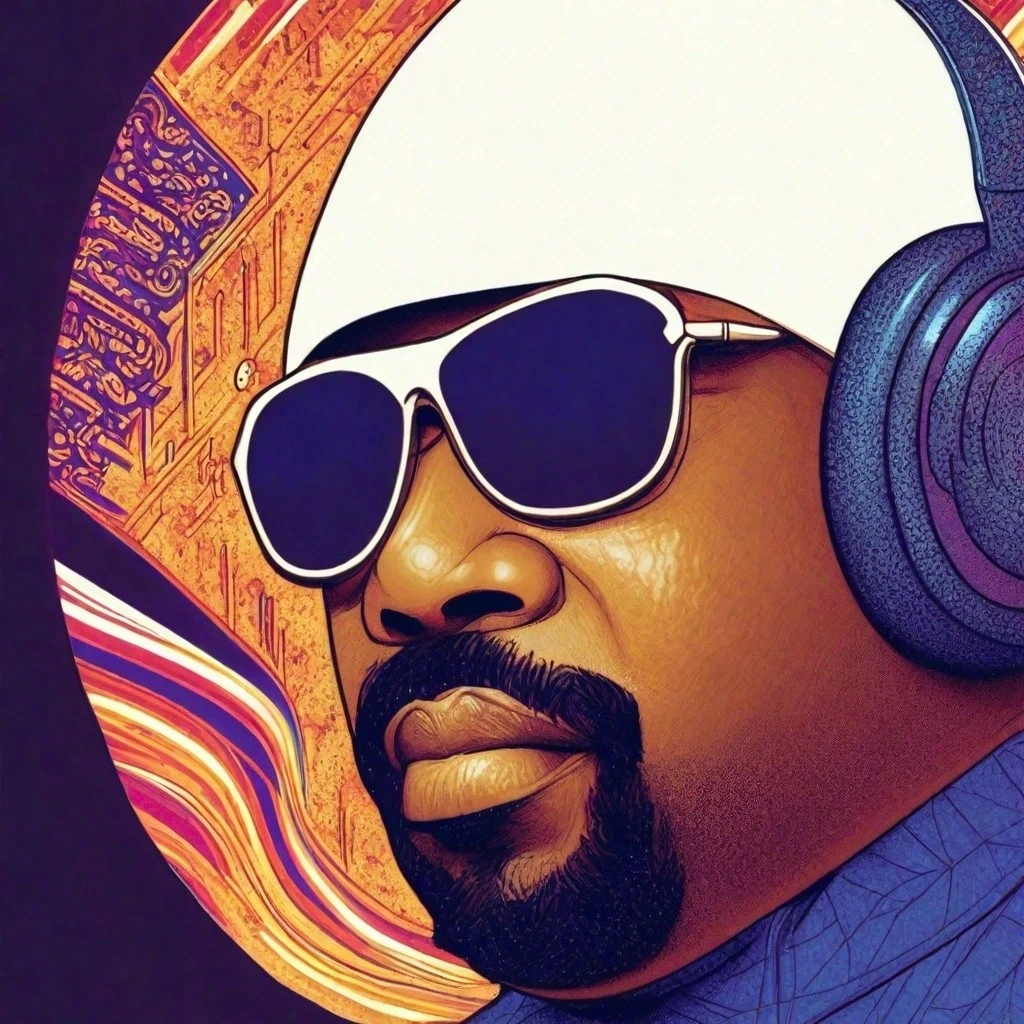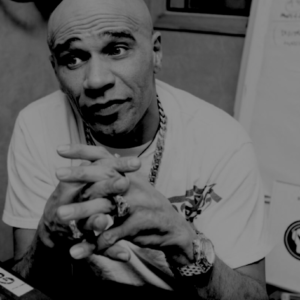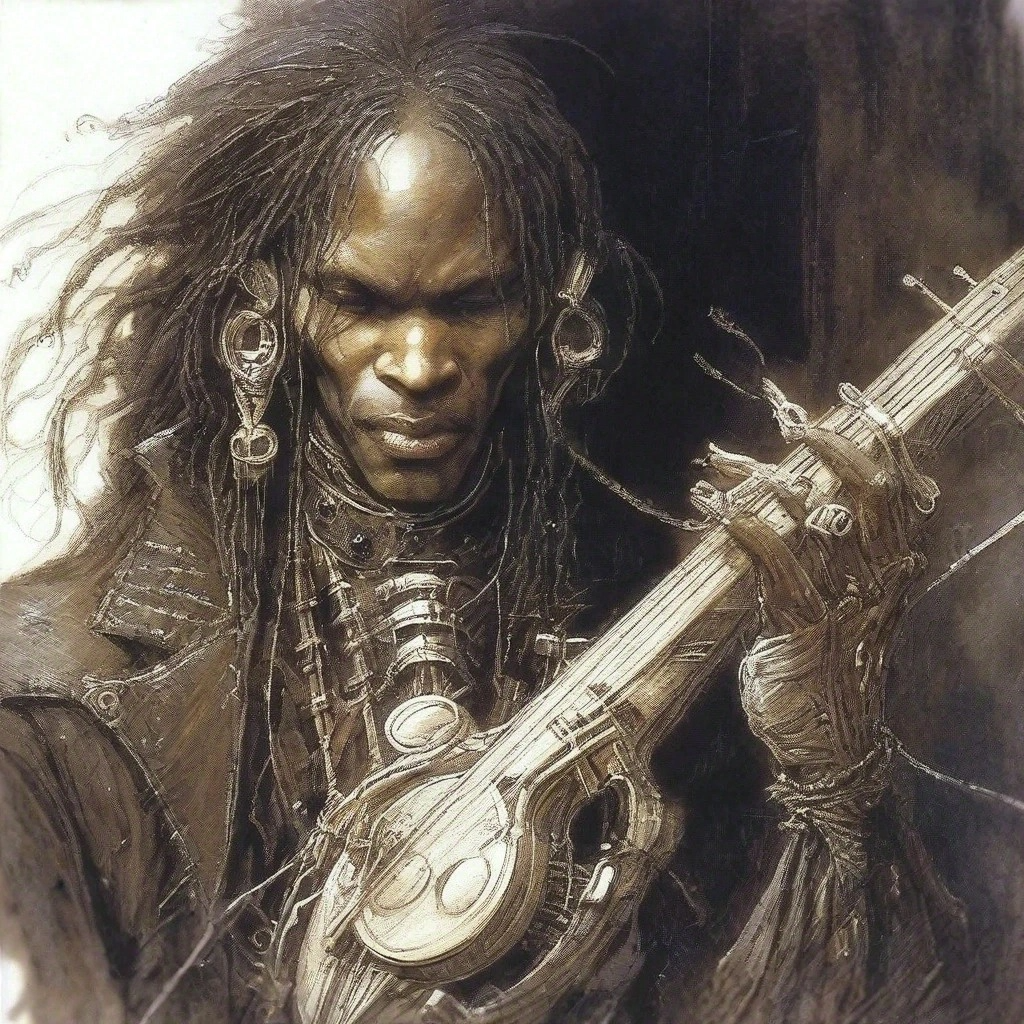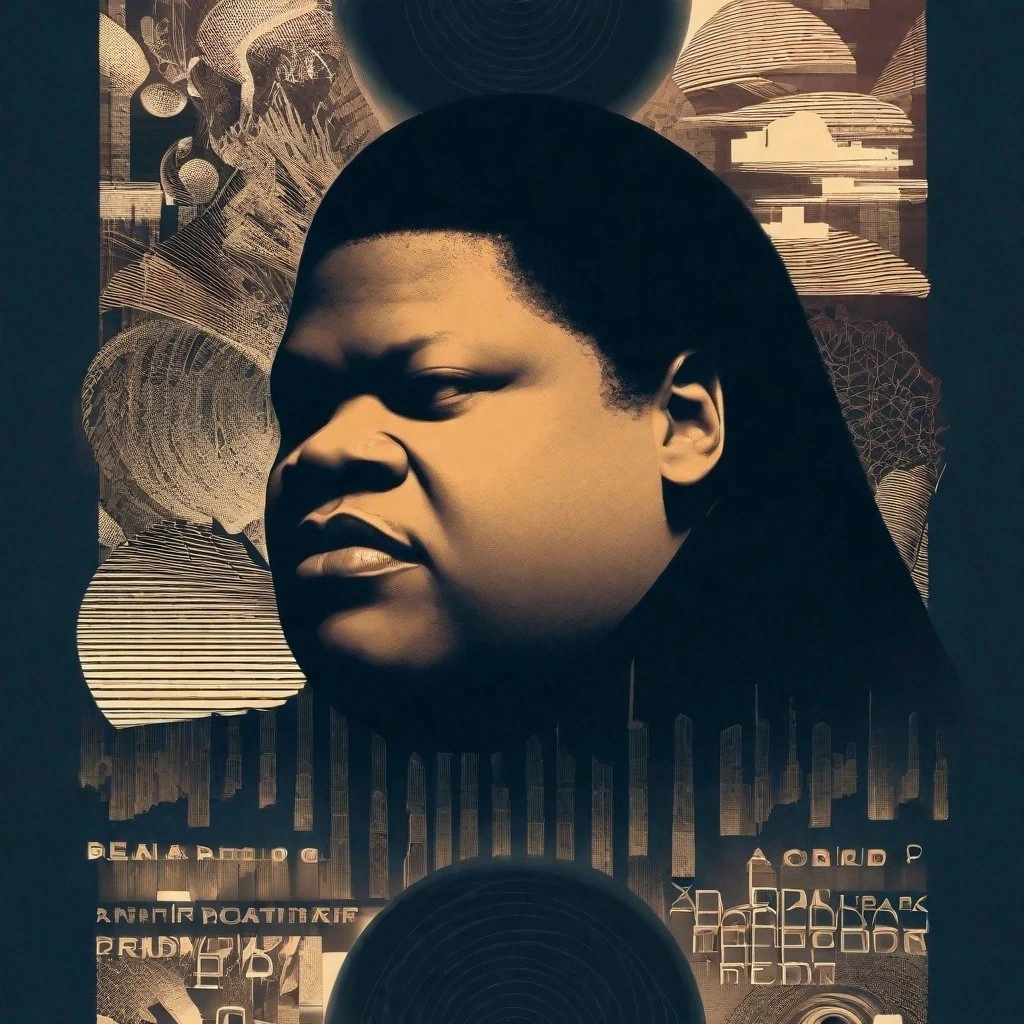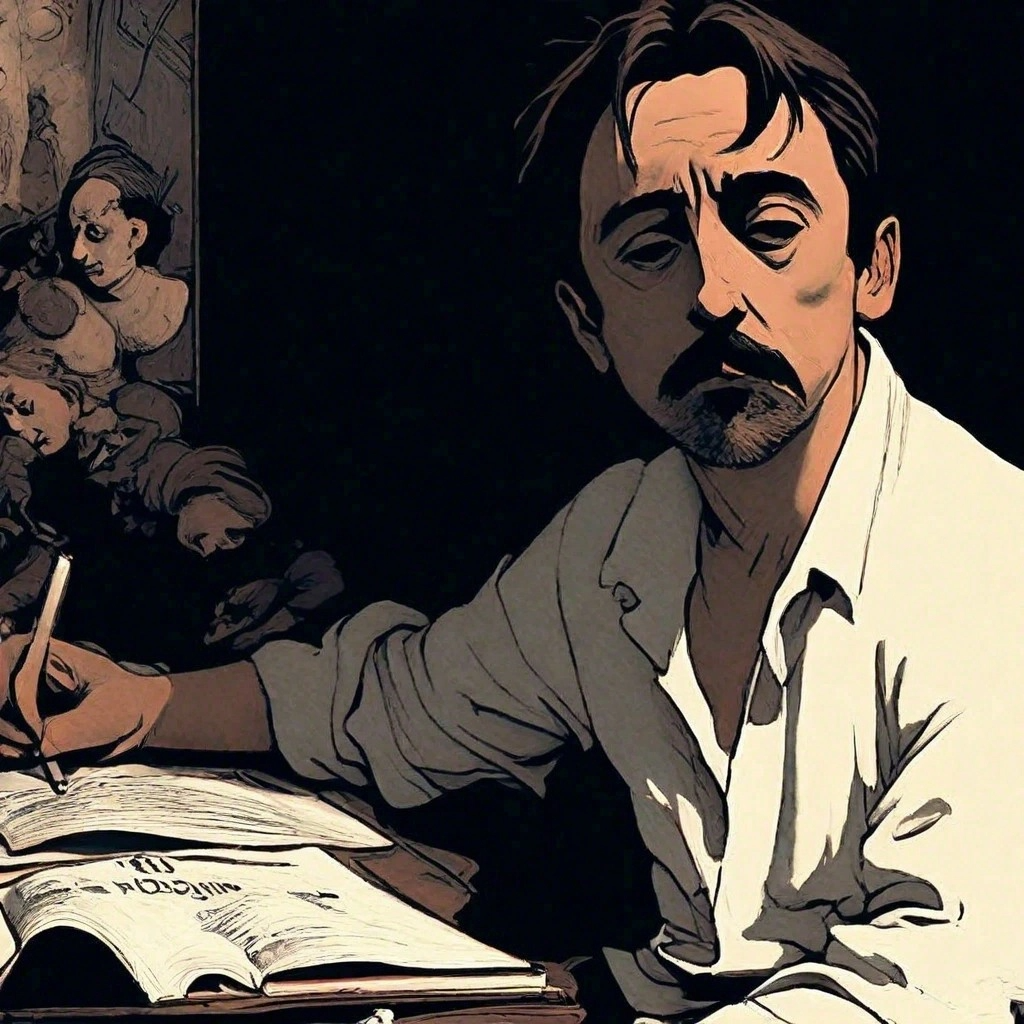Frankie Knuckles
Frankie Knuckles, often hailed as the “Godfather of House Music,” stands as a towering figure in the realm of electronic dance music. His pioneering contributions revolutionized the music scene, particularly in Chicago, where he became synonymous with the emergence of house music.
Born Francis Nicholls on January 18, 1955, in the Bronx, New York, Knuckles was destined for greatness in the world of music. From an early age, he exhibited a profound passion for rhythm and sound, which would later propel him to international acclaim.
Knuckles’ journey into music began as a teenager when he immersed himself in the vibrant nightlife of New York City. It was during this time that he discovered his innate talent for DJing, captivating audiences with his seamless mixes and infectious beats. His unique ability to blend diverse musical genres, from disco to soul, earned him a reputation as a trailblazing DJ.
In the late 1970s, Knuckles made a fateful move to Chicago, where he would leave an indelible mark on the city’s burgeoning club scene. It was here, at the iconic Warehouse nightclub, that he pioneered a new style of dance music, characterized by its pulsating rhythms and hypnotic melodies. This innovative sound would later come to be known as “house music,” a genre that would revolutionize the global music landscape.
Knuckles’ influence extended far beyond the DJ booth. As a producer, he collaborated with some of the industry’s biggest names, shaping the sound of countless artists and paving the way for future generations of musicians. His seminal tracks, including “Your Love” and “The Whistle Song,” remain timeless classics that continue to captivate audiences worldwide.
Throughout his illustrious career, Knuckles remained a beacon of creativity and innovation, pushing the boundaries of electronic music and inspiring countless artists along the way. His unwavering dedication to his craft and his pioneering spirit cemented his status as a true legend in the world of music.
As we delve deeper into the life and legacy of Frankie Knuckles, we unravel the story of a visionary artist who revolutionized an entire genre and left an indelible mark on the history of music.
Early Years and Influences
Frankie Knuckles’ formative years laid the foundation for his groundbreaking contributions to the music industry. Born and raised in the vibrant borough of the Bronx, New York, Knuckles was exposed to a rich tapestry of musical influences from an early age.
Growing up in the 1960s and 1970s, Knuckles was immersed in the diverse sounds of Motown, soul, funk, and disco that permeated the cultural landscape of New York City. These eclectic musical genres would shape his artistic sensibilities and ignite his passion for rhythm and melody.
As a teenager, Knuckles found himself drawn to the electrifying energy of the city’s burgeoning nightclub scene. He spent countless nights exploring legendary venues such as the Paradise Garage and Studio 54, where he was captivated by the transformative power of music on the dance floor.
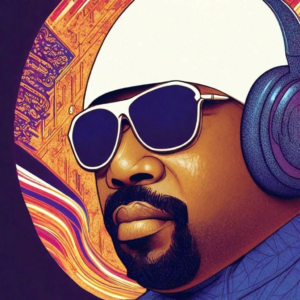 It was during these formative years that Knuckles discovered his calling as a DJ. Inspired by the pioneering work of disco legends like Larry Levan and David Mancuso, he began honing his skills behind the turntables, mastering the art of blending records and creating seamless transitions that kept the dance floor in perpetual motion.
It was during these formative years that Knuckles discovered his calling as a DJ. Inspired by the pioneering work of disco legends like Larry Levan and David Mancuso, he began honing his skills behind the turntables, mastering the art of blending records and creating seamless transitions that kept the dance floor in perpetual motion.
Knuckles’ early experiences as a DJ not only shaped his musical style but also forged lifelong friendships and collaborations within the industry. He formed close bonds with fellow DJs and producers, exchanging ideas and pushing the boundaries of electronic music.
In the late 1970s, Knuckles made a pivotal decision to relocate to Chicago, where he would embark on a new chapter in his musical journey. It was here, amidst the backdrop of a burgeoning underground club scene, that he would leave an indelible mark on the world of music.
The cultural melting pot of Chicago provided Knuckles with a fertile ground for experimentation and innovation. Inspired by the city’s diverse musical heritage, he began crafting a unique sound that blended elements of disco, funk, and soul with electronic beats and synthesized sounds.
Knuckles’ early years in Chicago laid the groundwork for his seminal contributions to the emergence of house music. His innovative DJ sets at the Warehouse nightclub captivated audiences and garnered a loyal following, setting the stage for a musical revolution that would reverberate around the globe.
As we reflect on Frankie Knuckles’ early years and influences, we uncover the roots of his visionary talent and the transformative power of music that propelled him to legendary status. His journey from the streets of the Bronx to the clubs of Chicago is a testament to the enduring legacy of a true pioneer in the world of electronic dance music.
Artistic Evolution and Musical Identity
Frankie Knuckles’ artistic evolution and musical identity are intrinsically intertwined with the evolution of house music itself. As a visionary artist and pioneer of the genre, Knuckles played a pivotal role in shaping its distinctive sound and aesthetic.
Knuckles’ artistic journey can be traced back to his formative years in New York City, where he honed his craft as a DJ and immersed himself in the vibrant nightlife scene. Influenced by the soulful sounds of disco and the innovative mixing techniques of his contemporaries, he began to develop his own unique style behind the turntables.
However, it was Knuckles’ move to Chicago in the late 1970s that would mark a turning point in his career and give rise to his seminal contributions to electronic music. At the Warehouse nightclub, Knuckles pioneered a new style of dance music characterized by its hypnotic rhythms, soulful vocals, and electronic synthesizers.
Drawing inspiration from the eclectic musical landscape of Chicago, Knuckles seamlessly blended elements of disco, funk, and soul with the emerging sounds of electronic dance music. His innovative DJ sets captivated audiences and laid the groundwork for the genre that would come to be known as “house music.”
Knuckles’ artistic evolution continued as he transitioned from DJing to producing, collaborating with a diverse range of artists and musicians to create groundbreaking tracks that pushed the boundaries of the genre. Tracks such as “Your Love” and “The Whistle Song” became instant classics, showcasing Knuckles’ signature blend of infectious grooves and soulful melodies.
Throughout his career, Knuckles remained committed to pushing the envelope of electronic music, constantly evolving and experimenting with new sounds and techniques. His willingness to take risks and embrace innovation cemented his status as a true pioneer in the world of dance music.
At the core of Knuckles’ musical identity was his unwavering passion for storytelling through sound. Whether he was behind the decks or in the studio, he had a knack for crafting immersive sonic experiences that transported listeners to another realm. His music was more than just a collection of beats; it was a reflection of his soul and spirit, imbued with emotion and meaning.
As we reflect on Frankie Knuckles’ artistic evolution and musical identity, we are reminded of the profound impact he had on the world of electronic music. His visionary talent and pioneering spirit continue to inspire generations of artists and musicians, leaving an indelible mark on the history of music.
Career Milestones and Achievements
Frankie Knuckles’ illustrious career is punctuated by a series of groundbreaking milestones and remarkable achievements that solidified his status as one of the most influential figures in the history of electronic music. From his early days as a pioneering DJ to his later successes as a producer and cultural icon, Knuckles’ journey is a testament to his unwavering dedication and innovative spirit.
One of Knuckles’ earliest career milestones came in the late 1970s when he relocated to Chicago and became the resident DJ at the Warehouse nightclub. It was here that he pioneered a new style of dance music, blending elements of disco, funk, and soul to create the iconic sound of house music. Knuckles’ legendary DJ sets at the Warehouse laid the foundation for an entire genre and earned him a devoted following of fans.
In 1984, Knuckles opened his own nightclub in Chicago called The Power Plant, further solidifying his role as a driving force in the city’s burgeoning house music scene. The club quickly became a mecca for dance music enthusiasts, hosting legendary parties and serving as a hub for creative collaboration and innovation.
Knuckles’ influence extended beyond the DJ booth as he began to make a name for himself as a producer. In 1987, he released his debut single “Your Love,” a seminal track that helped define the sound of house music and remains a classic to this day. The success of “Your Love” catapulted Knuckles to international fame and paved the way for a prolific career in the studio.
Throughout the 1980s and 1990s, Knuckles continued to churn out hit after hit, collaborating with some of the biggest names in the industry and remixing tracks for artists such as Whitney Houston, Michael Jackson, and Depeche Mode. His innovative production techniques and keen ear for melody earned him widespread acclaim and numerous accolades, including a Grammy Award for Remixer of the Year in 1997.
In addition to his musical achievements, Knuckles was also a trailblazer in the realm of LGBTQ+ rights and advocacy. As an openly gay man of color, he used his platform to promote acceptance, equality, and inclusivity within the dance music community. His tireless activism and commitment to social justice continue to inspire generations of artists and activists around the world.
As we reflect on Frankie Knuckles’ career milestones and achievements, we are reminded of the profound impact he had on the world of music and culture. His pioneering spirit, visionary talent, and unwavering dedication to his craft have left an indelible mark on the history of electronic music, ensuring that his legacy will continue to resonate for years to come.
Social and Cultural Impact
Frankie Knuckles’ influence extends far beyond the realm of music, leaving an indelible mark on society and culture that continues to resonate to this day. As a pioneering DJ, producer, and cultural icon, Knuckles played a pivotal role in shaping the social and cultural landscape of his time and inspiring future generations of artists and activists.
At the heart of Knuckles’ social and cultural impact was his role as a trailblazer in the LGBTQ+ community. As an openly gay man of color, he defied societal norms and challenged stereotypes, becoming a symbol of empowerment and resilience for marginalized communities around the world. Knuckles’ presence in the music industry served as a beacon of hope and acceptance, paving the way for greater visibility and representation within the dance music community.
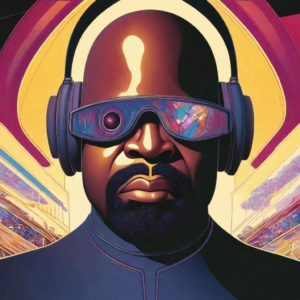 Knuckles’ legendary nightclub, The Warehouse, served as a sanctuary for LGBTQ+ individuals during a time when discrimination and prejudice were rampant. The club provided a safe space where people from all walks of life could come together to celebrate their shared love of music and dance, fostering a sense of community and belonging that transcended social barriers.
Knuckles’ legendary nightclub, The Warehouse, served as a sanctuary for LGBTQ+ individuals during a time when discrimination and prejudice were rampant. The club provided a safe space where people from all walks of life could come together to celebrate their shared love of music and dance, fostering a sense of community and belonging that transcended social barriers.
Through his music and activism, Knuckles advocated for acceptance, equality, and inclusivity, using his platform to raise awareness of LGBTQ+ issues and promote social justice. His tireless efforts to combat discrimination and intolerance helped to spark a cultural shift within the music industry, paving the way for greater representation and diversity in electronic music.
Knuckles’ impact on popular culture extended beyond the dance floor, influencing fashion, art, and entertainment in profound ways. His distinctive style and avant-garde sensibility inspired a generation of artists, designers, and creatives, shaping the aesthetic of the era and leaving an indelible imprint on mainstream culture.
Moreover, Knuckles’ contributions to the global music scene helped to bridge cultural divides and foster greater understanding and appreciation of diverse musical traditions. His innovative blending of genres and cultures helped to break down barriers and unite people from all walks of life in a shared celebration of creativity and expression.
As we reflect on Frankie Knuckles’ social and cultural impact, we are reminded of the transformative power of music to bring about positive change in the world. His legacy serves as a testament to the enduring power of art and activism to inspire, uplift, and unite people in the pursuit of a more just and equitable society.
Personal Life: Behind the Scenes
Beyond the pulsating beats and electrifying performances, Frankie Knuckles’ personal life offered a glimpse into the man behind the music – a complex and multifaceted individual whose journey was marked by triumphs, challenges, and profound moments of introspection.
Born Francis Nicholls on January 18, 1955, in the Bronx, New York, Knuckles’ early years were shaped by the vibrant energy of the city and the rich cultural tapestry of his surroundings. Growing up in a close-knit community, he was instilled with a strong sense of identity and resilience that would serve him well throughout his life.
As a young man, Knuckles navigated the complexities of his identity as a gay man of color in a society that often marginalized and discriminated against individuals like him. Despite facing adversity and prejudice, he embraced his true self with courage and authenticity, refusing to conform to societal expectations or norms.
Knuckles’ journey into music provided him with an outlet for self-expression and empowerment, allowing him to transcend the limitations imposed by his circumstances and connect with others on a deeper level. Through his artistry and creativity, he found solace and purpose, forging meaningful connections with fans and fellow artists alike.
However, Knuckles’ personal life was not without its challenges. Like many artists, he grappled with the pressures of fame and the demands of the music industry, navigating a delicate balance between his professional aspirations and his personal well-being. At times, he struggled with addiction and mental health issues, confronting his demons with courage and resilience.
Despite the ups and downs of his personal life, Knuckles remained steadfast in his commitment to his craft and his community. He used his platform to advocate for social change and promote acceptance and inclusion, becoming a beacon of hope and inspiration for marginalized communities around the world.
In his later years, Knuckles continued to share his gifts with the world, performing at clubs and festivals around the globe and mentoring aspiring artists and DJs. He remained deeply connected to his roots, giving back to the communities that had supported him throughout his career and using his influence to uplift and empower others.
As we reflect on Frankie Knuckles’ personal life, we are reminded of the complexities and nuances of the human experience. Behind the glamour and glitz of the music industry was a man whose journey was marked by resilience, authenticity, and a profound commitment to his art and his community.
Discography and Creative Works
Frankie Knuckles’ discography and creative works stand as a testament to his unparalleled talent and enduring legacy in the world of electronic music. As a DJ, producer, and remixer, Knuckles’ contributions have left an indelible mark on the genre, shaping the sound and direction of house music for generations to come.
Throughout his illustrious career, Knuckles released a diverse array of tracks and remixes that spanned the spectrum of electronic music. From soulful vocal house anthems to gritty underground grooves, his discography showcased his versatility and innovation as an artist.
One of Knuckles’ most iconic tracks is “Your Love,” released in 1987. The song, which features haunting vocals and pulsating rhythms, became an instant classic and helped define the sound of house music for years to come. Its infectious melody and hypnotic groove continue to captivate audiences on dance floors around the world.
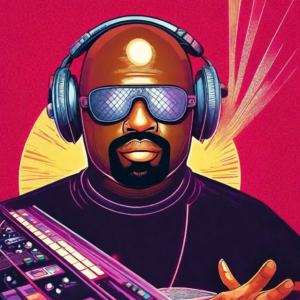 Another standout track in Knuckles’ discography is “The Whistle Song,” released in 1991. Known for its ethereal melodies and dreamy atmosphere, the song became a staple in clubs and radio stations worldwide, solidifying Knuckles’ reputation as a master of mood and emotion.
Another standout track in Knuckles’ discography is “The Whistle Song,” released in 1991. Known for its ethereal melodies and dreamy atmosphere, the song became a staple in clubs and radio stations worldwide, solidifying Knuckles’ reputation as a master of mood and emotion.
In addition to his original productions, Knuckles was also revered for his remixing prowess. Throughout the 1980s and 1990s, he reworked tracks for some of the biggest names in the industry, putting his unique stamp on songs by artists such as Whitney Houston, Michael Jackson, and Chaka Khan. His remixes breathed new life into familiar tracks, infusing them with his signature blend of soulful grooves and electronic textures.
Knuckles’ creative works extended beyond the studio, as he continued to push the boundaries of electronic music through his DJ sets and live performances. Known for his seamless mixing and impeccable track selection, he captivated audiences with his ability to tell a story through sound, taking listeners on a journey of discovery and exploration.
As we delve into Frankie Knuckles’ discography and creative works, we are reminded of his profound impact on the world of electronic music. His innovative productions, timeless classics, and legendary remixes have left an indelible mark on the genre, inspiring countless artists and shaping the sound of dance music for generations to come.
Fan Engagement and Community Building
Frankie Knuckles’ influence extended far beyond the dance floor, encompassing a deep and meaningful connection with his fans and the broader electronic music community. Through his unwavering dedication to his craft and his commitment to fostering a sense of belonging and camaraderie, Knuckles cultivated a vibrant and inclusive community that continues to thrive to this day.
At the heart of Knuckles’ approach to fan engagement was his genuine love and appreciation for his audience. Whether he was performing at a packed nightclub or spinning tracks at a festival, he made it a point to connect with each and every person in the crowd, creating an intimate and immersive experience that transcended the boundaries of time and space.
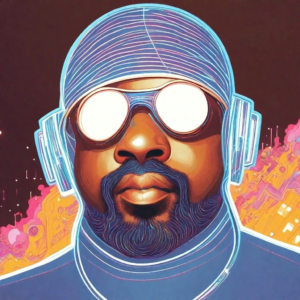 Knuckles’ accessibility and approachability endeared him to fans around the world, fostering a sense of loyalty and devotion that spanned generations. He took the time to interact with his fans both in person and online, responding to messages, sharing personal anecdotes, and expressing gratitude for their support.
Knuckles’ accessibility and approachability endeared him to fans around the world, fostering a sense of loyalty and devotion that spanned generations. He took the time to interact with his fans both in person and online, responding to messages, sharing personal anecdotes, and expressing gratitude for their support.
In addition to his individual interactions with fans, Knuckles also played a key role in building a sense of community within the electronic music scene. Through his legendary nightclub, The Warehouse, and later his residency at the Power Plant in Chicago, he provided a space where people from all walks of life could come together to celebrate their shared love of music and dance.
Knuckles’ commitment to community building extended beyond the confines of the club, as he used his platform to support emerging artists and promote diversity and inclusivity within the industry. He championed up-and-coming talent, providing opportunities for aspiring DJs and producers to showcase their skills and connect with audiences on a larger scale.
Moreover, Knuckles was a staunch advocate for social change and activism, using his influence to raise awareness of important issues and support causes close to his heart. From LGBTQ+ rights to racial justice, he lent his voice and his platform to amplify marginalized voices and promote positive change in society.
As we reflect on Frankie Knuckles’ legacy of fan engagement and community building, we are reminded of the transformative power of music to unite people from all walks of life. His dedication to fostering a sense of belonging and connection continues to inspire artists and fans alike, leaving an indelible mark on the world of electronic music and beyond.
Enduring Legacy and Historical Significance
Frankie Knuckles’ enduring legacy and historical significance are woven into the very fabric of electronic music, shaping the genre and influencing generations of artists and enthusiasts around the world. As the “Godfather of House Music,” Knuckles’ pioneering contributions revolutionized the music industry and propelled dance music into the mainstream, leaving an indelible mark on the history of music.
Knuckles’ legacy is rooted in his role as a trailblazer and innovator in the realm of electronic music. His groundbreaking DJ sets at the Warehouse nightclub in Chicago laid the foundation for the emergence of house music, a genre characterized by its pulsating rhythms, soulful vocals, and infectious energy. Knuckles’ ability to blend diverse musical influences and create immersive sonic experiences captivated audiences and inspired a new generation of DJs and producers.
Moreover, Knuckles’ influence extended beyond the confines of the dance floor, as he used his platform to advocate for social change and promote acceptance and inclusion within the music industry. As an openly gay man of color, he challenged stereotypes and shattered barriers, paving the way for greater visibility and representation for marginalized communities in the world of electronic music.
Knuckles’ impact on popular culture is undeniable, as his music continues to resonate with audiences around the world decades after its initial release. His timeless classics, including “Your Love” and “The Whistle Song,” remain staples in DJ sets and playlists, ensuring that his legacy will endure for generations to come.
Furthermore, Knuckles’ contributions to the global music scene have been recognized and celebrated by industry peers and fans alike. He received numerous accolades throughout his career, including a Grammy Award for Remixer of the Year in 1997, cementing his status as a true icon in the world of electronic music.
As we reflect on Frankie Knuckles’ enduring legacy and historical significance, we are reminded of the transformative power of music to inspire, unite, and uplift people from all walks of life. His visionary talent, pioneering spirit, and unwavering dedication to his craft have left an indelible mark on the history of music, ensuring that his influence will be felt for generations to come.
Conclusion and Reflections
In conclusion, Frankie Knuckles’ legacy stands as a testament to the transformative power of music to shape culture, inspire change, and unite people from all walks of life. As the “Godfather of House Music,” Knuckles revolutionized the electronic music scene with his pioneering contributions, leaving an indelible mark on the history of music and culture.
From his early days as a DJ in New York City to his legendary residency at the Warehouse nightclub in Chicago, Knuckles’ journey was defined by innovation, creativity, and a relentless pursuit of excellence. His ability to blend diverse musical influences and create immersive sonic experiences captivated audiences and inspired a new generation of artists and enthusiasts.
Moreover, Knuckles’ impact extended beyond the dance floor, as he used his platform to advocate for social change and promote acceptance and inclusion within the music industry. As an openly gay man of color, he challenged stereotypes and shattered barriers, paving the way for greater visibility and representation for marginalized communities in the world of electronic music.
Throughout his illustrious career, Knuckles remained true to his artistic vision and unwavering in his commitment to his craft. His timeless classics, innovative productions, and legendary remixes continue to resonate with audiences around the world, ensuring that his legacy will endure for generations to come.
As we reflect on Frankie Knuckles’ life and legacy, we are reminded of the profound impact that one individual can have on the world through their passion, creativity, and dedication. His pioneering spirit, visionary talent, and unwavering commitment to his art have left an indelible mark on the history of music, inspiring countless artists and enthusiasts to follow in his footsteps.
In the end, Frankie Knuckles’ legacy serves as a beacon of hope and inspiration for future generations, reminding us of the transformative power of music to uplift, unite, and inspire change in the world.
